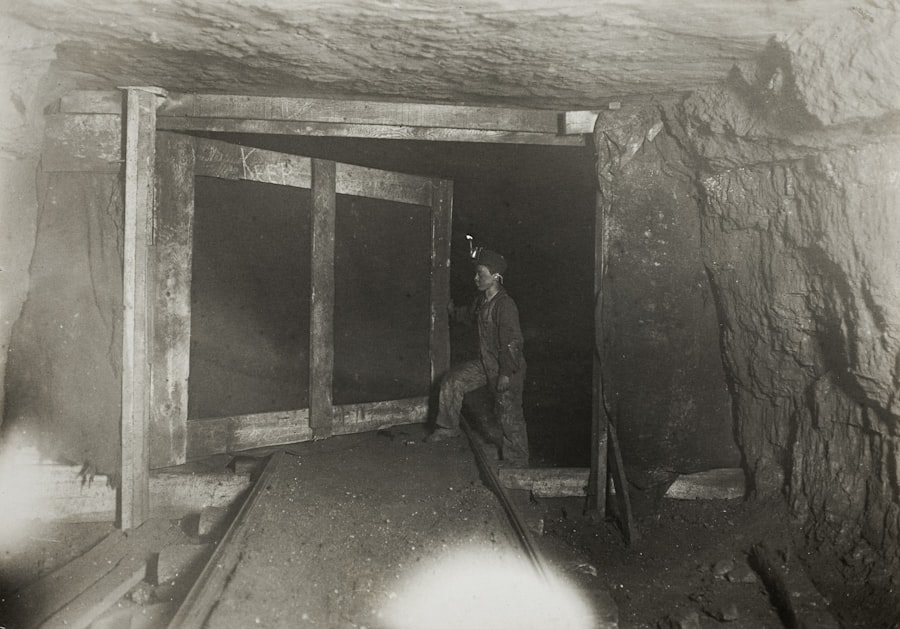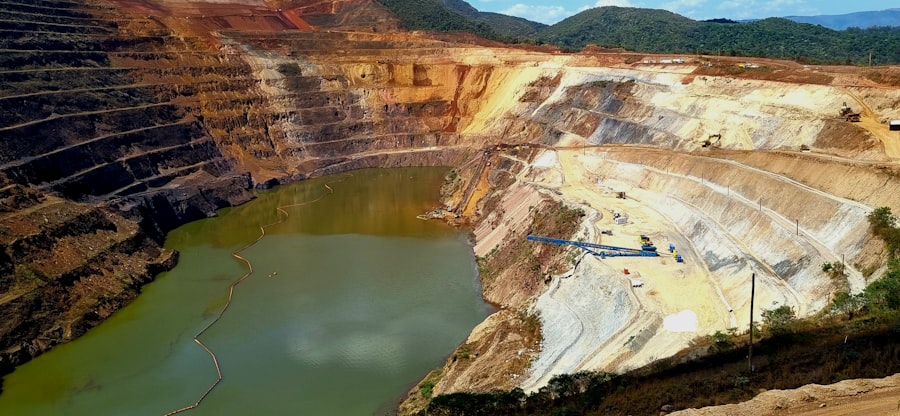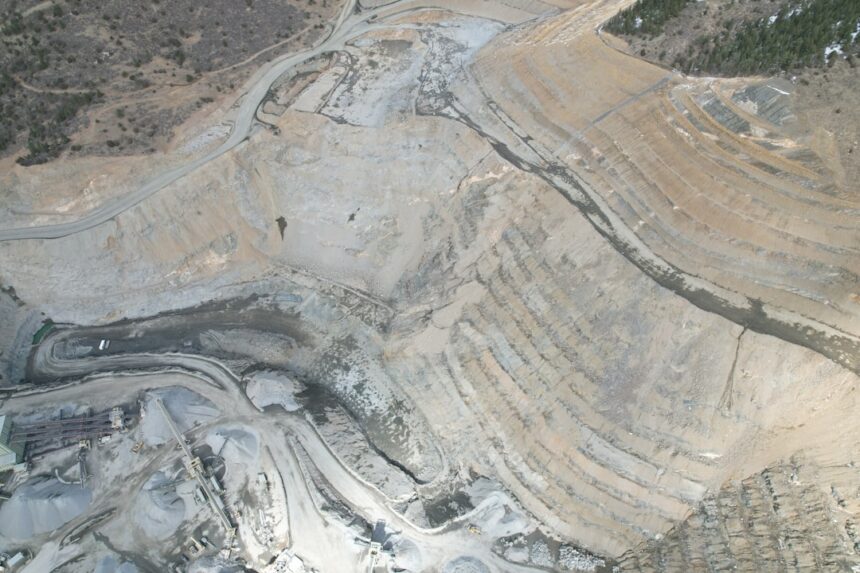Mining concessions are legal agreements that grant companies the right to explore and extract minerals from a specific area of land. These concessions are typically issued by governments and are subject to various regulations and conditions aimed at ensuring responsible mining practices. The process of obtaining a mining concession often involves extensive research, environmental assessments, and negotiations with local communities.
Companies must demonstrate their capability to operate sustainably while adhering to the legal frameworks established by the governing bodies. The significance of mining concessions extends beyond mere extraction; they play a crucial role in the economic development of a region. By providing access to valuable resources, these concessions can stimulate local economies, create jobs, and foster infrastructure development.
However, the complexities surrounding mining concessions also necessitate a thorough understanding of the legal, environmental, and social implications involved. As such, stakeholders must navigate a landscape that balances economic interests with the need for sustainable practices and community welfare.
Key Takeaways
- Mining concessions require robust security to protect assets, personnel, and operations.
- Risks include theft, sabotage, environmental damage, and social conflicts.
- Effective security measures combine technology, private security, and government oversight.
- Community engagement and adherence to international standards enhance security outcomes.
- Future trends emphasize advanced technology and sustainable, socially responsible security practices.
Importance of Security in Mining Concessions
Security in mining concessions is paramount for several reasons. First and foremost, the extraction of minerals often occurs in remote areas that may be prone to illegal activities, including theft, vandalism, and even armed conflict. Ensuring the safety of personnel, equipment, and resources is essential for maintaining operational continuity and protecting investments.
A secure environment not only safeguards physical assets but also fosters a sense of stability that is crucial for attracting further investment in the mining sector.
They encompass the safeguarding of sensitive information related to operations, financial transactions, and environmental assessments.
In an era where data breaches can have catastrophic consequences, companies must implement robust cybersecurity protocols alongside traditional security measures. This multifaceted approach to security is vital for maintaining the integrity of mining operations and ensuring compliance with regulatory requirements.
Risks Associated with Mining Concessions

The risks associated with mining concessions are diverse and can have far-reaching implications for both companies and local communities. One of the most significant risks is the potential for conflict with local populations. Mining activities can disrupt traditional livelihoods, lead to land disputes, and create tensions between different stakeholder groups.
If not managed effectively, these conflicts can escalate into violence, resulting in operational shutdowns and reputational damage for the companies involved. Additionally, environmental risks pose a considerable challenge in mining concessions. The extraction process can lead to habitat destruction, water pollution, and soil degradation if not conducted responsibly.
These environmental impacts can have long-lasting effects on local ecosystems and communities that depend on natural resources for their survival. Companies must be vigilant in assessing and mitigating these risks to ensure that their operations do not compromise the health of the environment or the well-being of nearby populations.
Security Measures for Mining Concessions
| Security Measure | Description | Effectiveness Rating | Implementation Cost | Frequency of Review |
|---|---|---|---|---|
| Perimeter Fencing | Physical barriers to prevent unauthorized access to mining sites. | High | Moderate | Annual |
| Surveillance Cameras | Installation of CCTV systems to monitor activities around the concession. | High | High | Quarterly |
| Access Control Systems | Use of ID cards and biometric scanners to restrict entry to authorized personnel. | Very High | High | Bi-Annual |
| Security Patrols | Regular patrols by security personnel to deter theft and vandalism. | Medium | Moderate | Monthly |
| Alarm Systems | Electronic alarms triggered by unauthorized access or tampering. | High | Moderate | Quarterly |
| Lighting | Strategic lighting to improve visibility and deter intruders at night. | Medium | Low | Annual |
| Community Engagement | Collaboration with local communities to report suspicious activities. | Medium | Low | Ongoing |
| Cybersecurity Measures | Protection of digital systems controlling mining operations and data. | Very High | High | Monthly |
To address the myriad risks associated with mining concessions, companies must implement comprehensive security measures tailored to their specific operational contexts. Physical security measures often include the installation of surveillance systems, access control points, and perimeter fencing to deter unauthorized entry and protect valuable assets. Additionally, employing trained security personnel can enhance on-site safety by providing a visible deterrent against potential threats.
Beyond physical security, companies should also prioritize risk assessment and crisis management planning. Conducting regular security audits can help identify vulnerabilities and inform the development of contingency plans. Training employees in emergency response protocols ensures that they are prepared to act swiftly in the event of a security breach or natural disaster.
By fostering a culture of security awareness among staff, companies can create an environment where everyone plays a role in safeguarding operations.
Role of Government in Ensuring Security
Governments play a critical role in ensuring security within mining concessions through regulatory frameworks and enforcement mechanisms. By establishing clear guidelines for mining operations, governments can help mitigate risks associated with illegal activities and environmental degradation. Regulatory bodies are responsible for monitoring compliance with these guidelines, conducting inspections, and imposing penalties for violations.
Furthermore, governments can facilitate dialogue between mining companies and local communities to address concerns related to security and resource management. By fostering collaboration among stakeholders, governments can help build trust and promote shared benefits from mining activities. This collaborative approach not only enhances security but also contributes to sustainable development by ensuring that local populations have a voice in decisions that affect their lives.
Private Security Companies and Mining Concessions

The involvement of private security companies in mining concessions has become increasingly common as companies seek specialized expertise in managing security risks.
By leveraging the knowledge and experience of private security professionals, companies can enhance their overall security posture.
However, the use of private security companies also raises ethical considerations. There have been instances where private security forces have been implicated in human rights abuses or conflicts with local communities. To mitigate these risks, mining companies must conduct thorough due diligence when selecting security partners and ensure that they adhere to international human rights standards.
Establishing clear guidelines for engagement with local populations can help prevent misunderstandings and foster positive relationships.
Environmental and Social Security Concerns
Environmental and social security concerns are integral to discussions surrounding mining concessions. The potential for environmental degradation due to mining activities necessitates robust environmental management plans that prioritize sustainability. Companies must conduct thorough environmental impact assessments before commencing operations and implement measures to minimize harm to ecosystems.
Socially, mining companies must recognize their responsibility towards local communities affected by their operations. Engaging with these communities through transparent communication channels can help address grievances and build trust. Companies should invest in community development initiatives that provide tangible benefits, such as education, healthcare, and infrastructure improvements.
By prioritizing social responsibility alongside economic interests, mining companies can contribute to long-term stability in the regions where they operate.
Technology and Security in Mining Concessions
The integration of technology into security measures for mining concessions has revolutionized how companies manage risks. Advanced surveillance systems equipped with artificial intelligence can monitor vast areas in real-time, detecting potential threats before they escalate. Drones are increasingly being used for aerial surveillance, providing an efficient means of monitoring remote sites without putting personnel at risk.
Moreover, data analytics plays a crucial role in enhancing security protocols. By analyzing patterns of activity within mining areas, companies can identify vulnerabilities and develop targeted strategies to address them. Cybersecurity measures are equally important as digital systems become more integrated into mining operations.
Protecting sensitive data from cyber threats is essential for maintaining operational integrity and safeguarding company assets.
Community Engagement for Security in Mining Concessions
Community engagement is a vital component of ensuring security in mining concessions. Establishing open lines of communication between mining companies and local populations fosters trust and collaboration. Regular community meetings provide opportunities for stakeholders to voice concerns, share information about ongoing operations, and discuss potential impacts on local livelihoods.
Involving community members in decision-making processes related to mining activities can lead to more equitable outcomes. When local populations feel heard and valued, they are more likely to support mining operations rather than oppose them. Additionally, community engagement initiatives can help identify potential security risks early on, allowing companies to address issues proactively before they escalate into conflicts.
International Standards and Security in Mining Concessions
Adhering to international standards is crucial for ensuring security in mining concessions on a global scale. Various organizations have established guidelines that promote responsible mining practices while addressing security concerns. For instance, the International Council on Mining and Metals (ICMM) provides frameworks that emphasize ethical conduct, environmental stewardship, and community engagement.
By aligning their operations with these international standards, mining companies can enhance their credibility and reputation within the industry. Compliance with recognized guidelines not only mitigates risks but also demonstrates a commitment to sustainable development practices. Furthermore, engaging with international organizations can provide valuable resources and support for implementing effective security measures.
Future Trends in Security for Mining Concessions
As the mining industry continues to evolve, so too will the approaches to security within mining concessions. One notable trend is the increasing reliance on technology-driven solutions to enhance safety measures. Innovations such as blockchain technology may offer new ways to secure supply chains and ensure transparency in transactions related to mineral extraction.
Additionally, there is a growing emphasis on sustainability as a core component of security strategies. Companies are recognizing that long-term success depends on balancing economic interests with environmental stewardship and social responsibility. As stakeholders demand greater accountability from mining operations, those that prioritize sustainable practices will likely gain a competitive advantage.
In conclusion, the landscape of mining concessions is complex and multifaceted, requiring a comprehensive understanding of various factors influencing security measures. From government regulations to community engagement initiatives, each element plays a critical role in shaping how companies navigate the challenges associated with mineral extraction. As the industry moves forward, embracing innovative technologies and sustainable practices will be essential for ensuring the long-term viability of mining operations while safeguarding both people and the environment.
In recent discussions surrounding the implications of mining concessions on national security, an insightful article can be found on In The War Room. This piece delves into the intricate relationship between resource extraction and geopolitical stability, highlighting how mining operations can both bolster and undermine security in various regions. For a deeper understanding of these dynamics, you can read the article [here](https://www.inthewarroom.com/).
WATCH THIS! The Secret War for Africa’s Gold: How Private Armies Fund Global Conflict
FAQs
What are mining concessions?
Mining concessions are legal rights granted by a government or authority to individuals or companies, allowing them to explore, extract, and exploit mineral resources within a specified area for a certain period.
How are mining concessions related to security?
Mining concessions are often tied to security because mining areas can be vulnerable to illegal activities such as theft, smuggling, and conflicts. Ensuring security helps protect the mining operations, workers, and the surrounding communities.
Who is responsible for the security of mining concessions?
Security responsibility typically involves multiple stakeholders, including the mining companies, local law enforcement agencies, private security firms, and sometimes the military, depending on the region and the level of risk.
Why is security important in mining concession areas?
Security is crucial to prevent illegal mining, protect valuable resources, ensure the safety of workers, maintain order, and support sustainable development in mining regions.
What challenges affect security in mining concessions?
Challenges include illegal mining activities, armed conflicts, theft of minerals, environmental degradation, and sometimes disputes between local communities and mining companies.
How do governments regulate mining concessions to enhance security?
Governments may implement strict licensing procedures, enforce laws against illegal mining, deploy security forces, and collaborate with mining companies to monitor and secure mining sites.
Can mining concessions impact local communities’ security?
Yes, mining concessions can affect local communities by altering economic conditions, causing displacement, or leading to conflicts over land and resources, which makes community engagement and security measures essential.
Are there international standards for security in mining concessions?
While there are no universal standards specifically for security in mining concessions, international guidelines on responsible mining practices and human rights often include recommendations for maintaining security and safety.
What role do mining companies play in ensuring security?
Mining companies are responsible for implementing security protocols, training staff, collaborating with authorities, and engaging with local communities to create a safe and secure mining environment.
How does security influence the economic viability of mining concessions?
Effective security reduces risks of theft, damage, and operational disruptions, thereby protecting investments and ensuring continuous production, which is vital for the economic success of mining concessions.



